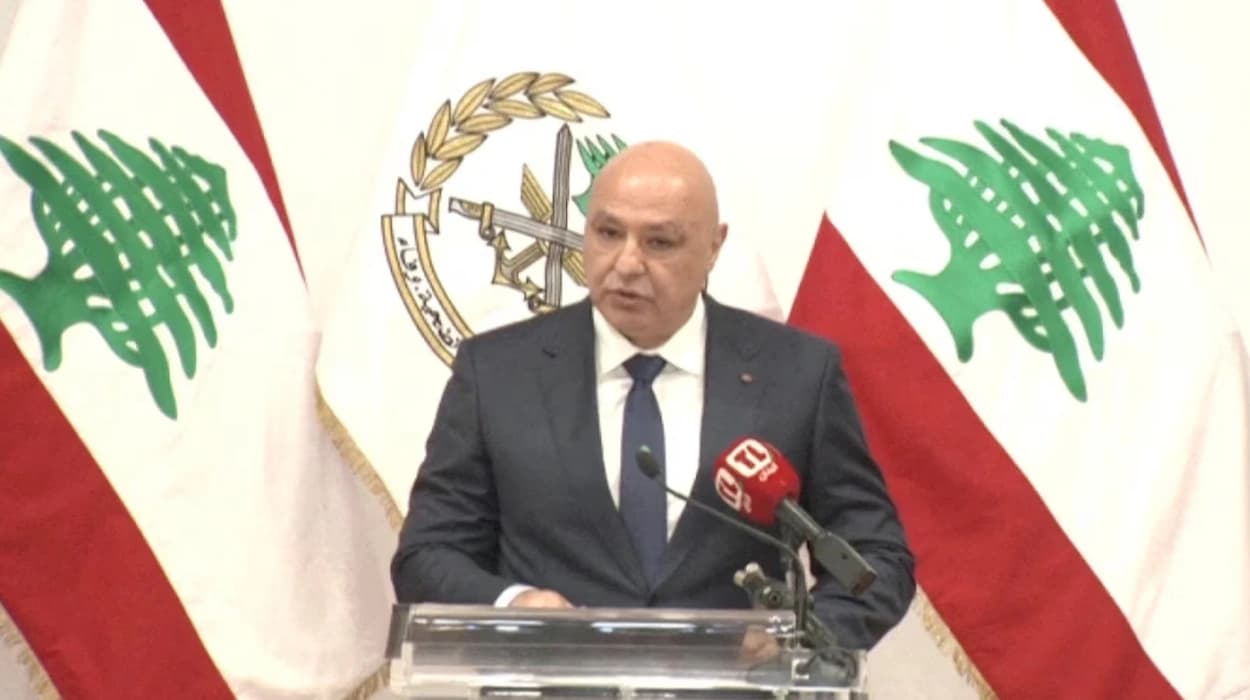The Trump administration approved $230 million in aid to
Lebanon’s security forces just before the U.S. government shutdown, aimed at
supporting the Lebanese Armed Forces and Internal Security Forces in disarming
Hezbollah and maintaining a fragile ceasefire with Israel. The funding was
strategically released to bolster Lebanese sovereignty and the implementation
of UN Security Council Resolution 1701.
Trump Administration Allocates $230 Million for Lebanese Security Forces
In a last-minute move to prevent funds from lapsing amid a
U.S. government shutdown, the Trump administration authorised $230 million in
assistance to Lebanon’s security apparatus this week. According to Tamilla
Hasanova of Caliber.az, the aid package comprises $190 million for the Lebanese
Armed Forces (LAF) and $40 million for the Internal Security Forces (ISF),
forming part of ongoing efforts to disarm Hezbollah and stabilise the region.
Democratic congressional aides noted the timing of the
disbursement, which occurred just before the end of the U.S. fiscal year on
September 30, calling it “really, really significant” for a small country like
Lebanon (Caliber.az; UNN).
Support for Lebanese Sovereignty and UN Resolution 1701
A spokesperson for the U.S. State Department, in a statement shared with Reuters, outlined that the American assistance aims to support Lebanese forces
“as they work to assert Lebanese sovereignty across the country and fully implement UN Security Council Resolution 1701.”
This resolution,
passed in August 2006, ended the major conflict between Hezbollah and Israel
and remains the only viable framework for lasting security arrangements between
Lebanon and Israel.
The funds come amid heightened efforts to maintain peace and
security in southern Lebanon, especially following renewed conflict last year
triggered by Hezbollah following Hamas’s attacks on Israel in October 2023. The
administration regards these efforts as critical to regional stability,
especially given the ongoing focus on resolving the Gaza conflict and curbing
Iranian influence.
Practical Impact of the Funding
As highlighted by Reuters sources and Lebanese officials,
the $230 million will enable the Internal Security Forces to take on greater
responsibility for domestic security operations. This shift allows the Lebanese
Armed Forces to concentrate on other critical missions, including controlling
the disarmament of Hezbollah in key areas such as south of the Litani River and
the Beqaa Valley.
Gabriel, CEO of the American Task Force for Lebanon (ATFL),
told The Hill from Beirut that the funding “will enable the Lebanese government
and the LAF to improve their efforts to remove Hezbollah from areas south of
the Litani River and to initiate operations in the Beqaa Valley north of
Litani.” He added that the challenge lies in securing sufficient resources to
complete the disarmament process within the coming year, focusing on final operations
in southern Lebanon (The Hill).
U.S. Political Context and Bipartisan Cooperation
The funding was released amid volatile political
circumstances in Washington, as a government shutdown occurred due to disputes
between Republican and Democratic lawmakers. A Democratic congressional aide
described the bipartisan release of the $230 million as an example of effective
cooperation to maintain key foreign policy and security priorities despite the
shutdown.
The Republican Trump administration’s broader foreign aid
cuts, citing an “America First” spending focus, contrast with this targeted
investment in Lebanon reflecting its strategic priority for peace in the Middle
East.
Lebanese Leadership’s Role and Regional Stakes
Lebanese President Joseph Aoun and Prime Minister Nawaf
Salam had earlier requested a plan from the U.S.-supported military to ensure
that all arms in Lebanon are held by security forces by the end of 2025.
Despite Hezbollah’s consistent rejection of disarmament calls, the group now
faces mounting pressure both domestically and internationally to relinquish its
weapons (Caliber.az; Reuters).
The ongoing conflict between Hezbollah and Israel, following
Hamas’s strike on October 7, 2023, and the resulting year-long cross-border
violence, has caused widespread destruction in Lebanon. The ceasefire brokered
in November 2024, facilitated by the U.S., includes terms contingent on
Hezbollah’s disarmament by Lebanese forces.
U.S. Officials and Political Figures’ Engagement
The Trump administration’s broader Middle East envoy efforts
include engagement with Lebanon. Barrack Trump, the special envoy to Turkey and
Syria, has also involved himself in Lebanese matters, accompanying delegations
to Beirut alongside former deputy Middle East envoy Morgan Ortagus and
Republican members of Congress.
Senator Jeanne Shaheen, a senior member of the Senate
Foreign Relations Committee, underscored the importance of strengthening
Lebanese armed forces and advancing financial reforms during a Beirut visit.
Representative Lindsey Graham urged Lebanon to take responsibility for
disarming Hezbollah, despite ongoing tensions and Israeli military operations
in southern Lebanon (The Hill).
Looking Ahead: A Path Toward Regional Stability
President Donald Trump sees stability in Lebanon as part of his broader goal of achieving lasting peace in the Middle East, beginning with resolving the Gaza conflict and reducing Iran’s regional influence. Gabriel of the ATFL stated that the administration “certainly has its sights set on the ultimate aim of peace between Lebanon and Israel,” while Lebanese perspectives emphasise the aim of establishing a
“stable and prosperous nation at peace with its neighbours” (The Hill).
The newly approved funds are thus seen as essential support
for Lebanon’s security forces to exert sovereignty and implement peace
agreements, signalling continued U.S. involvement in supporting the country’s
security and regional diplomacy.
